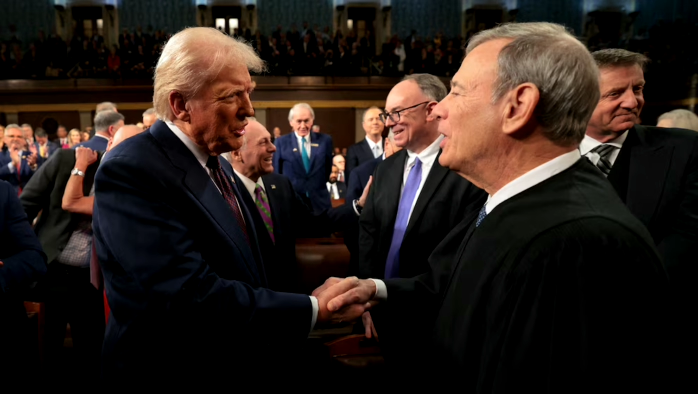The Supreme Court handed President Trump a major victory for his immigration agenda on Monday, clearing the way for ICE to carry out “mass deportation” operations in Los Angeles.
The justices stayed lower court rulings that had found U.S. Immigration and Customs Enforcement violated the Constitution by factoring in race, ethnicity, language, and location when deciding whom to question about legal status.
Justice Brett M. Kavanaugh wrote that while ethnicity cannot serve as the sole basis for enforcement actions, it may be considered as a “relevant factor” when weighed alongside others.
“Under this court’s precedents, not to mention common sense, those circumstances taken together can constitute at least reasonable suspicion of illegal presence in the United States,” he wrote.
The decision marks a major victory for the administration, which had argued that lower courts were overstepping by curbing its ability to execute Trump’s mass deportation strategy.
Los Angeles emerged as the focal point of the crackdown in early June, when federal authorities deployed additional manpower to carry out arrests, sparking riots across the city.
Trump answered by federalizing and deploying National Guard troops and U.S. Marines, a move that triggered a fresh round of legal challenges over the scope of presidential war and policing powers that are still working their way through the courts.
The ICE tactics case cuts to the core of when and how immigration officers can approach potential suspects.
Judge Maame Frimpong, a Biden appointee in Los Angeles, cited news reports in finding that ICE and deputized federal agents were targeting people simply for speaking Spanish or spending time at car washes. She ruled that such factors do not meet the threshold of “reasonable suspicion” required for a lawful stop and issued an injunction blocking arrests she said would violate the Fourth Amendment’s protections against unreasonable searches and seizures.
The 9th U.S. Circuit Court of Appeals upheld her order, criticizing ICE for being overly secretive about what it considers legitimate grounds for a stop. Judges said the evidence available — much of it from news accounts — failed to justify the agency’s practices.
U.S. Solicitor General D. John Sauer, representing the Trump administration, argued to the Supreme Court that the lower court rulings created confusion, leaving ICE officers uncertain about what actions they could lawfully take and fearful of being penalized.
He stressed that agents need leeway to operate, particularly in Los Angeles, which has the largest concentration of undocumented immigrants in the country.



